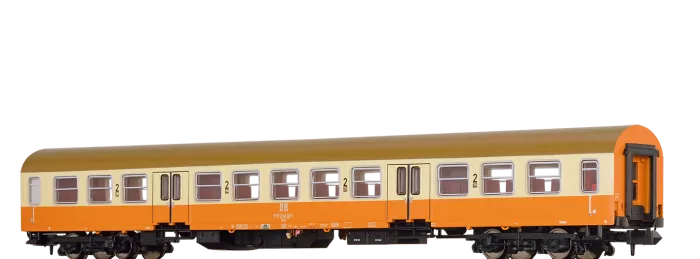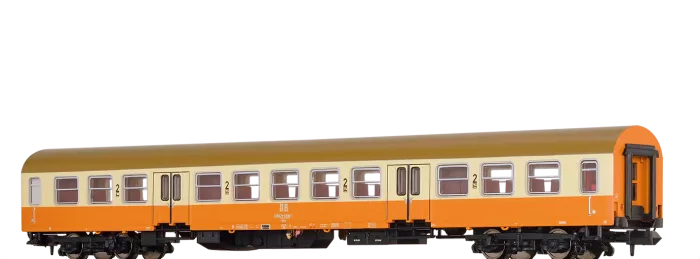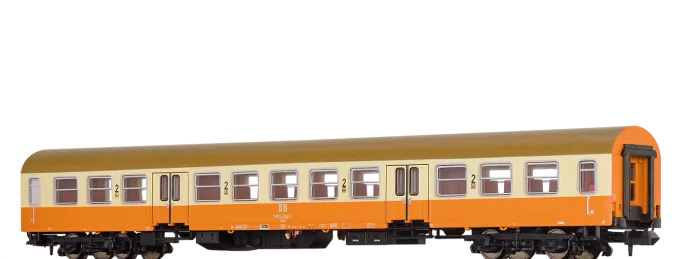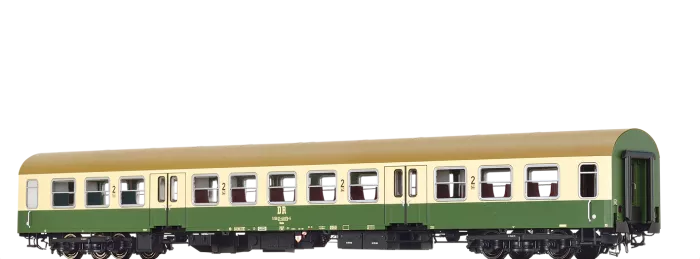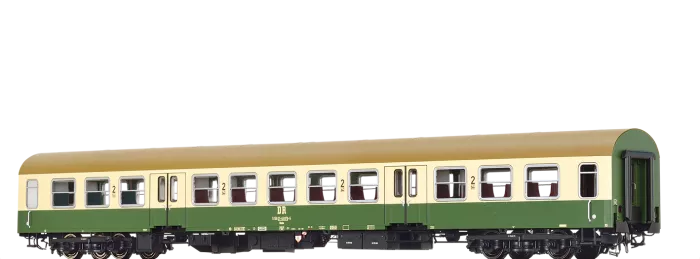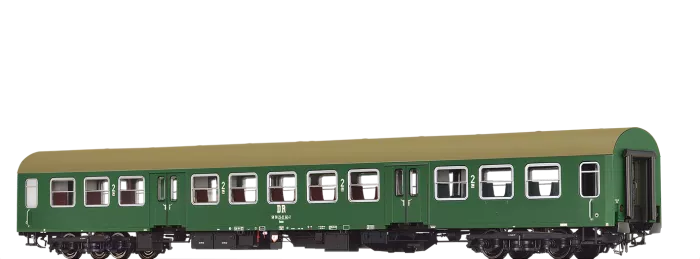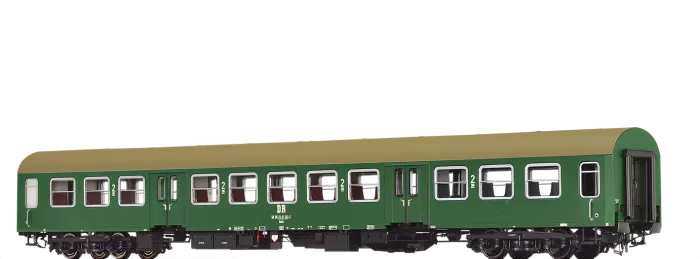
Passenger Coach Bmhe DR
Road no.: 51 50 21-12 000-9
Model details
- Excellent running qualities with 3-point suspension
- Interior fittings in multicolour painting
- Free standing anti-roll support on bogie
- Coloring corresponding to the original
- Precisely inserted slidingwindows and printed window frames throughout
- Replicated airheating system in the car floor
- Precise replica of the „Görlitz V“ bogies
- NEM-standard short-coupling
- Passageway between coaches with separately mounted rubber beading
Downloads
Info about the original
By 1977, the Halberstadt RAW (Reichsbahn repair shop) had produced over 3000 fouraxle Reko cars for the DR. Their body length was due to a concession to the RAWs structural conditions. By that time, these cars were out of date for commuter and local transport, and no longer suitable for premium service. Since the railcar industry in the DDR was fully occupied with export orders, Halberstadt RAW was the only shop available for the construction of the new car. Because the facilities there had been expanded by this time, the new vehicle could now fully exploit the UIC measure of 26.4 m. There was a prototype as early as 1973, and a second followed in 1975. Both were tested extensively in daily operations. The name „Langer Halberstädter“ was coined rather quickly in common parlance, making a connection with the famous sausages produced there. While the cars were still in construction, a request came from DR to make the car suitable for „premium international assignments“, which naturally led to changes in the design. A car was built with two entrances and three passenger compartments with a central corridor. At first glance, the Bmhe seems like a copy of the DB Silberling, but it was in fact a new version of the Bghwe car, with many new components. This is especially evident in the unladen weight, which is fairly high at 39 tons and not compatible with the „world class“ level so often aspired to in the DDR. The cars proved themselves in operation, and the passengers perceived them to be definite steps forward. In accordance with the requirements from the order, they were originally used almost exclusively in high-speed trains for national and international transport. They also achieved objectives in Czechoslovakia, Poland and West Germany. The cars that were delivered from 1982 onwards featured the new green and ivory-colored paint for express cars.


